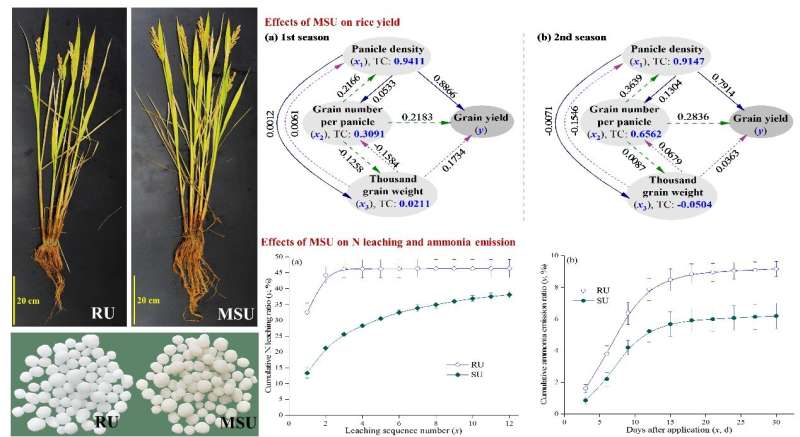Novel matrix-based slow-release urea improves crop production

The applied nitrogen in crop production is easily lost through ammonia emission and nitrogen leaching. Therefore, many attempts have been made to develop novel slow-release fertilizers to reduce nitrogen loss and improve crop production.
A research team led by Prof. Wu Yuejin from the Institute of Intelligent Machines of the Hefei Institutes of Physical Science developed a novel matrix-based slow-release urea (MSU) recently to improve nitrogen use efficiency in rice production, and they assessed the performances of it.
"MSU is a promising fertilizer for rice production," said Wu, "as less nitrogen loss and greater soil nitrogen availability can improve rice growth traits and physiological parameters in MSU."
In this research, the researchers combined the organic and inorganic matrix-materials to improve the performance of MSU. These matrix-materials showed high adsorption and flocculation capacity, leading to the good slow-release performance of the MSU. Additionally, the matrix-materials contained available iron and sulfur, which promoted the nutritional balance of rice.
Consequently, application of the MSU increased agronomic nitrogen efficiency by 58%-64% and rice yield by 18%-21%.
"We have trust on a broad prospect for environment-friendly and efficient rice production of MSU," said Yang Yang, a researcher in the team.
More information: Yang Yang et al, Rice productivity and profitability with slow-release urea containing organic-inorganic matrix materials, Pedosphere (2021). DOI: 10.1016/S1002-0160(21)60001-2
Provided by Chinese Academy of Sciences




















